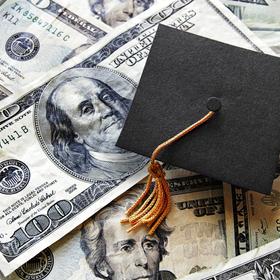Opinion
Private school vouchers are available in one form or another in thirteen states and the District of Columbia. That being so, I wondered whether schools which accept vouchers are subject to state regulations over and above what they normally would be subject to. The National Conference of State Legislatures has a useful State-by-State Comparison of School Voucher Laws which allows you and me to compare the various programs.
Background
Currently thirteen states and the District of Columbia have enacted laws which provide scholarships for students meeting specific conditions so they can attend private school. These scholarships are generally referred to as vouchers. Do these private school voucher programs give parents' the choices they desire? Do private schools' give up their most cherished feature, namely, their independence? How are these programs working? What results are they achieving?
John Stoessel and others make the case for vouchers.
Most voucher programs have good intentions. They seek to give parents options in a specific set of circumstances. Sometimes the state voucher law is written to give vouchers to students with a learning disability. Other laws are written with low-income families in mind. Interestingly enough there seem to very few conditions which the private schools accepting vouchers have to meet. If the school merely accepts students without being concerned as to the source of their funding, the school apparently does not have to sacrifice any of its independence. After all, being mostly free of regulations concerning what they can teach and how they teach is what private schools are all about. For the sake of our discussion, I am defining a private or independent school that receives its income from tuition and endowments as opposed to a grant from public funds.
The way vouchers work in some states, Ohio and Wisconsin, for example, vouchers are awarded on the basis of need. In a common example, the family lives in a school district with underperforming public schools. There are a couple of private schools in the area which they would like to send their children to but really cannot afford to do so without some financial assistance. The state or local government provides a modest amount of financial assistance to a limited number of low-income families in order to allow them to send their children to private school. Typically to qualify, families must meet federal poverty guidelines, have a child in an underperforming school or already be in the state or local government voucher program. The precise eligibility requirements vary from state to state.
In other states, vouchers are awarded to students that have a learning disability for which an IEP is in place.
When the state awards the scholarships, those awards are made directly to the parents. Not the school. The awards are made only to schools that have registered to accept students with vouchers. What is the value of a typical award? Again, the award formulas vary from state to state. Generally, the awards are equal to the average per-pupil allocation on a statewide basis.
How One Voucher Program Works
Ohio, for example, has had its voucher program in place since 2005. It has been so popular over the past seven years that it currently offers 60,000 scholarships. But the way in which the Ohio statutes have been written gives the awards to the parents. The schools do have to register with the state department of education. If they don't, they will not be eligible to accept students who have been awarded vouchers.
Another reason why private schools do not sacrifice their independence by accepting students with vouchers is that the voucher principle is essentially the same principle as that which is enshrined in the GI Bill. With the GI Bill, educational benefits are awarded to service people with the stipulation that these awards are for educational purposes only.
As long as the vouchers are paid to individuals as opposed to the private, parochial or independent (non-public) schools directly, I believe that the schools are not sacrificing any control to state, local and federal government.
The Real Issue
But wait! There's more. The 800-pound gorilla in the room is really school reform. You wouldn't have states and local governments offering vouchers in the first place if public education in those localities were, in fact, doing their job. As long as we continue to have stonewalling and resistance to educational reform, concerned parents are going to continue to demand that their legislators come up with solutions that give parents choices.
Professor Angela Dills takes a closer look at vouchers in this video.
From the parents' perspective all they want is for their children to be prepared for life and careers in the 21st century workplaces. They want their children to be educated in schools where learning takes place. They want their children in schools where discipline is not an issue. Diversity and racial tolerance are the norms. Parents see these as advantages of a private school education which can be theirs thanks to a voucher program. Voucher programs offer these parents an option which they otherwise would never have had for their children.
From the teachers' perspective vouchers seem to be a real threat to public school funding. Both the National Education Association and the American Federation of Teachers have come out against vouchers.
From the politicians' perspective voucher programs show their constituents they are attempting to do something about under-performing schools. Unfortunately in some states, politicians have passed voucher legislation which actually does not require the private school accepting the vouchers to do anything. Accountability for some reason is lacking.
Vouchers in the Courts
Ever since Milwaukee's Parental Choice Program was passed in 1990 voucher programs have faced a variety of legal challenges in the courts. In one of the more recent challenges, North Carolina's voucher legislation was declared unconstitutional for several reasons including the fact that the law required the private schools accepting vouchers to do nothing.
Citizens United takes the view that vouchers should be opposed.
In truth, vouchers ought to be seen as recurring evidence that school reform is needed. Vouchers give parents choices. That's not a threat. That's competition.
Questions? Contact us on Facebook. @privateschoolreview
More Reading














